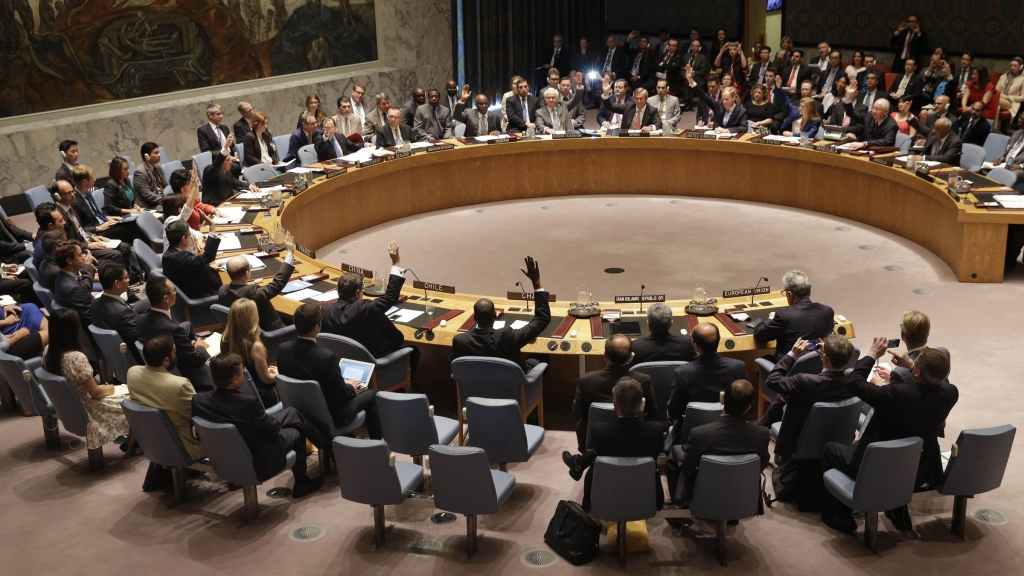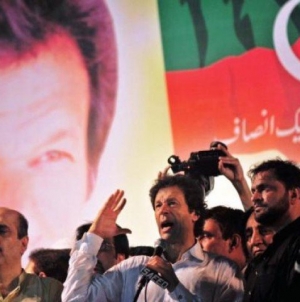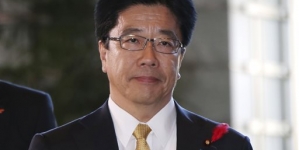-
Tips for becoming a good boxer - November 6, 2020
-
7 expert tips for making your hens night a memorable one - November 6, 2020
-
5 reasons to host your Christmas party on a cruise boat - November 6, 2020
-
What to do when you’re charged with a crime - November 6, 2020
-
Should you get one or multiple dogs? Here’s all you need to know - November 3, 2020
-
A Guide: How to Build Your Very Own Magic Mirror - February 14, 2019
-
Our Top Inspirational Baseball Stars - November 24, 2018
-
Five Tech Tools That Will Help You Turn Your Blog into a Business - November 24, 2018
-
How to Indulge on Vacation without Expanding Your Waist - November 9, 2018
-
5 Strategies for Businesses to Appeal to Today’s Increasingly Mobile-Crazed Customers - November 9, 2018
UN Security Council passes resolution to lift Iran sanctions
“The draft resolution has been adopted unanimously”, announced New Zealand’s Foreign Minister Murray McCully, who presided over the Security Council for the Iran meeting.
Advertisement
The nuclear deal in Vienna was made between Iran and the five permanent members of The U.N. Security Council: the United States, Britain, France, Russian Federation and China, as well as Germany, collectively known as the P5+1.
Sen. Lindsey Graham of South Carolina, a Republican presidential candidate, said on Monday “the Iranian deal may be good enough for the United Nations, but it’s a terrible deal for the United States“.
The American Israel Public Affairs Committee (AIPAC) spent what appears to be a record $1.67 million during the first half of the year as it lobbied Congress to enact legislation giving lawmakers the ability to review an Iran nuclear deal, which the group strongly opposes.
With the resolution passed Monday, the restrictions on procurement of nuclear-related material will stay in place for 10 years. But the deal has been rejected by Israel and some countries in the Middle East have raised concern that it will strengthen Iranian influence in the region. Conservative USA lawmakers and other warhawks, echoing the words of Israeli Prime Minister Benjamin Netanyahu, have tried to thwart the worldwide agreement.
Khoshroo said Iran promises to be “resolute in fulfilling its obligations” and expects all other parties to the agreement to meet their commitments.
Iran agreed in Vienna to a range of measures to declaw its nuclear programmes like shutting down some of its atomic equipment, repurposing some plants and agreeing to allow IAEA inspectors into existing and suspected nuclear facilities.
The resolution also keeps in place an embargo on the import and export of conventional arms for five years and a ban on supply of ballistic missile technology for eight years.
The White House has been heavily lobbying Congress, which has 60 days to review the agreement, to vote to approve or disapprove of the deal, or take no action. If the Security Council receives a complaint of a breach it would then need to vote within 30 days on a resolution to extend sanctions relief.
If the council fails to vote on a resolution, the sanctions will be automatically reimposed.
After being approved by the United Nations and European Union, the deal only has to pass USA congress. President Barack Obama has promised that he will use his veto to block any opposition.
Advertisement
As a result of the deal Iran would mothball the majority of its centrifuges used to enrich uranium for at least a decade and sharply reduce its low-enriched uranium stockpile.





























